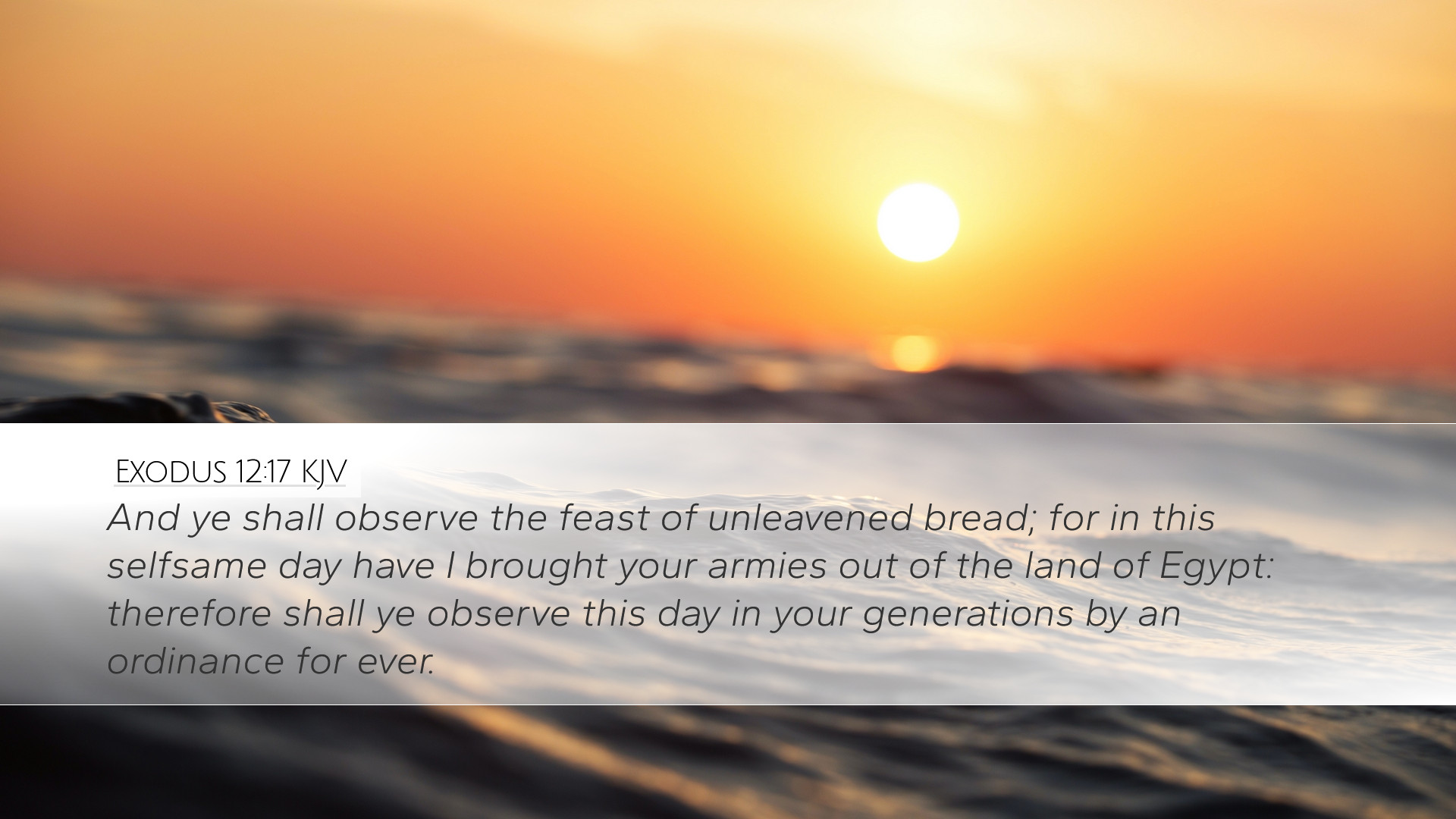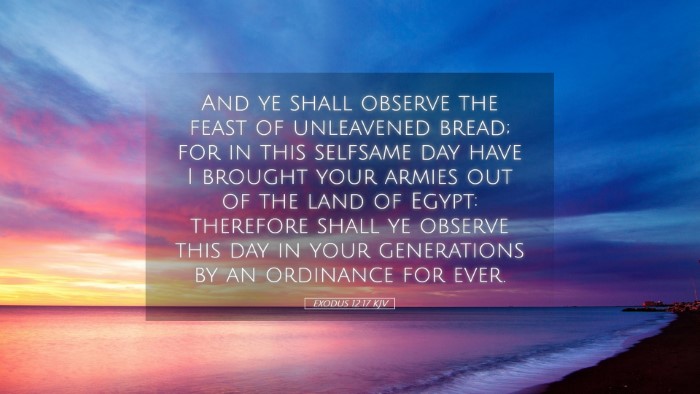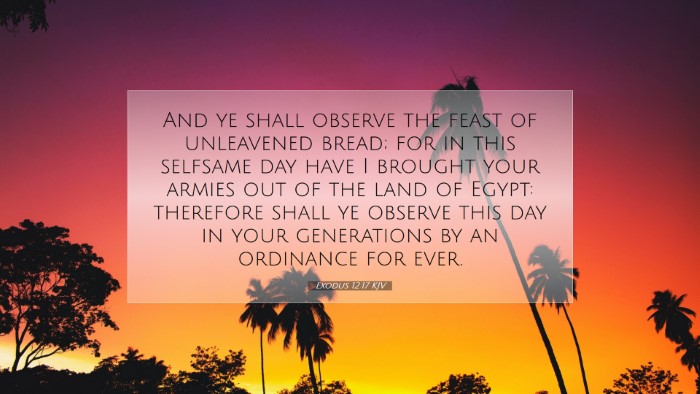Commentary on Exodus 12:17
Text of Exodus 12:17: "And ye shall observe the feast of unleavened bread; for in this selfsame day have I brought your armies out of the land of Egypt: therefore shall ye observe this day in your generations by an ordinance for ever."
Introduction
The verse Exodus 12:17 calls for the observance of the Feast of Unleavened Bread. This feast is not merely a ceremonial practice but a profound reminder of God's deliverance of the Israelites from slavery in Egypt. In this commentary, we will explore the significance of this instruction, drawing insights from prominent public domain commentaries, emphasizing its theological, historical, and practical implications for believers today.
Historical Context
The Hebrew people were enslaved in Egypt for over 400 years. The Exodus marks a pivotal point in their identity as a nation and their relationship with God. Matthew Henry notes that the liberation from Egypt by divine intervention is a significant act of God’s faithfulness to His covenant with Abraham, Isaac, and Jacob. The Passover and the subsequent Feast of Unleavened Bread serve as a memorial of this deliverance.
Theological Significance
Albert Barnes emphasizes the theological implications of this observance. The Feast of Unleavened Bread symbolizes purity and separation from sin. Leaven, often viewed as a metaphor for sin in the Scriptures, is to be removed from their homes. Thus, the practice established a powerful association between physical and spiritual cleansing, highlighting the need for holiness in the life of the believer.
God's Deliverance
Adam Clarke elaborates on the importance of remembering God’s acts of deliverance. The command to commemorate this day “in your generations” underscores the necessity of passing down the memory of God’s saving acts to future generations. This practice becomes a vital part of their identity and faith, institutionalizing the remembrance of God's faithfulness in times of oppression.
Observance as an Ordinance
The requirement to observe this day as an “ordinance for ever” reveals the ongoing need to recognize God’s works in our lives. It serves as a spiritual anchor for believers. Clarke highlights that this observance not only reminds the people of their past but also instills hope for future deliverances, fostering a culture of gratitude and reverence towards God.
Practical Implications for Believers
The observance of the Feast of Unleavened Bread has important applications for modern believers. Just as the Israelites were called to remember their deliverance from Egypt, Christians are called to remember their deliverance from sin through Christ. Every year, during the period of Passover and Easter, Christians can reflect on the themes of sacrifice, redemption, and transformation.
- Reflection on Sin: Just as leaven was to be removed from their homes, believers are encouraged to examine their lives for sin and purge it.
- Thankfulness: The command to remember encourages a lifestyle of gratitude for God’s past deliverance, fostering a heart of worship and praise.
- Teaching Future Generations: Parents and church leaders are tasked with ensuring that the stories of God’s faithfulness are taught and instilled in children, providing them a solid foundation for their faith.
Conclusion
Exodus 12:17 is not just a command for an ancient ritual but a divine mandate for ongoing remembrance and observance of God’s faithfulness. By reflecting on this command and its implications, pastors, theology students, and scholars are reminded of the significance of deliverance in the life of faith. As believers today, understanding the depth of this command enriches our communal worship and personal relationship with God. The call to observe, remember, and celebrate remains a vital part of our spiritual journey.


